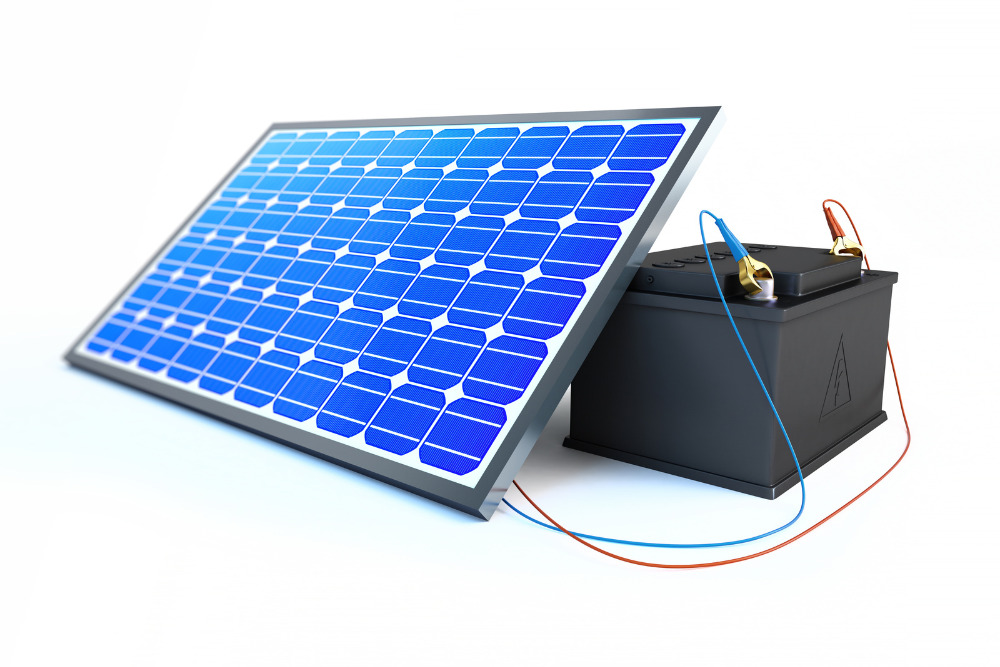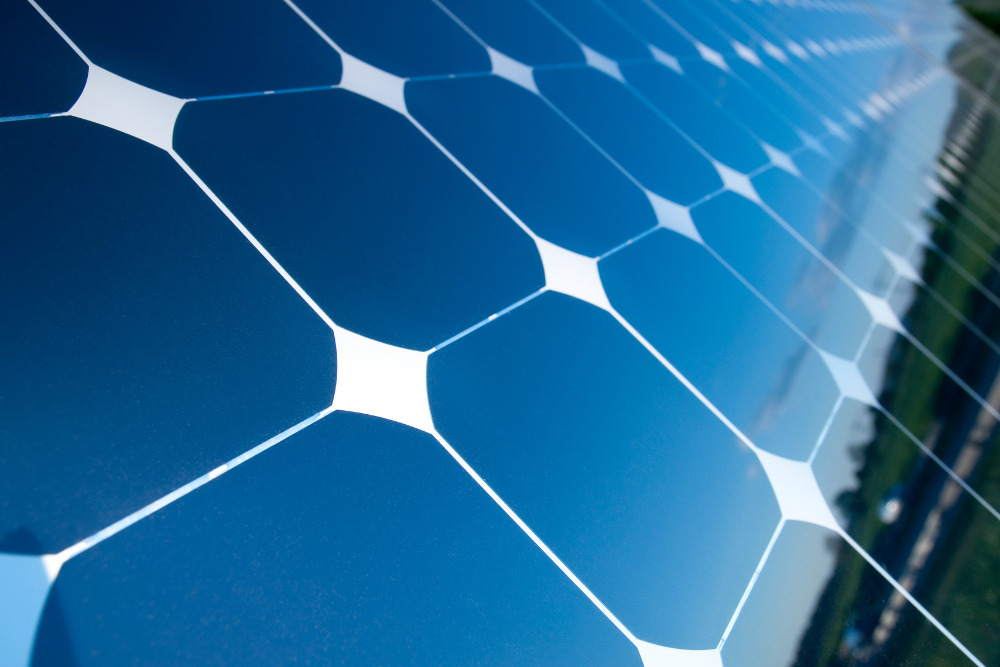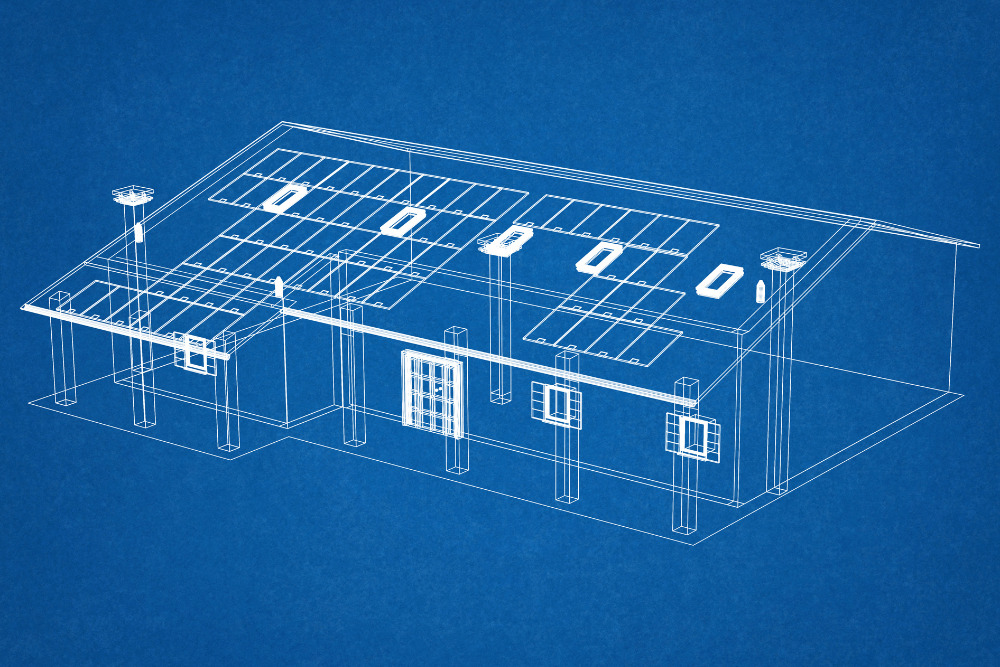
As more people turn to solar panels to power their homes and businesses, it’s essential to hire knowledgeable installers that keep up with the latest permit applications and building codes to ensure the safety and efficiency of photovoltaic installations.
New technology and regulations around solar panel installations are constantly appearing, and it is important for installers to stay on top of these developments. Solar panel building codes and permitting requirements ensure the panels are properly installed per the manufacturer’s installation instructions and connected to the grid for safety, efficiency, and performance.
Why Follow Proper Building Codes When Installing Solar Panels?
It’s The Law
Following proper building codes when installing solar panels is the law. Solar panels involve following many complex building and electrical codes that exist to reduce overall risk and prevent electrical faults, fire hazards, or structural failures.
Increases Efficiency
Moreover, complying with building codes contributes to solar panel performance. Proper installation techniques, including appropriate wiring, mounting, and grounding, can optimize the system's efficiency and output.
Adhering to industry best practices also helps prevent issues such as shading, panel misalignment, or inadequate ventilation – frequent reasons for poor system output.
Extends Lifespan
In addition to safety and performance, following building codes promotes the durability and longevity of the solar panel system. Codes often include standards for structural integrity, weather resistance, and corrosion protection.
By following these guidelines, installers will build a system that withstands environmental conditions, such as high winds, heavy snow loads, or extreme temperatures. This can help extend the system’s lifespan and minimize costly repairs or replacements.
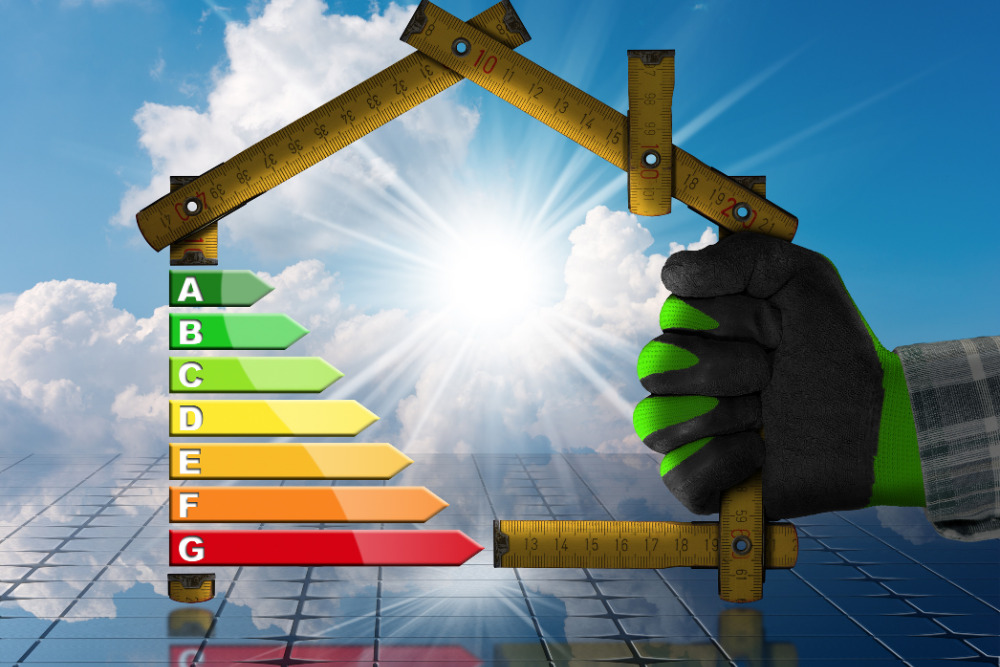
What Makes Solar Panel Installations So Complex?
Permitting and Documentation
Before starting a solar project, obtaining a building permit and electrical permit is a typical requirement in most municipalities.
Once the system has been inspected by a representative of your local jurisdiction, usually a commercial or residential code inspector or fire fighter, you will receive an interconnection permit to connect to the utility grid.
Solar installations require proper permits and documentation, which can involve navigating local regulations, zoning requirements, and utility interconnection procedures. Failure to obtain the proper permits could result in fines or orders to remove the solar panel system, so it’s essential that your installer is knowledgeable with local laws.
Permitting requirements vary from state to state and even by county and city, so be careful if you’re considering using a national installer. Ensure they’re familiar with local regulations.
Site Assessment & Plan Review
Determining the optimal placement and orientation of a photovoltaic system requires a comprehensive site assessment. Shading analysis, roof structure and condition inspections, load-bearing capacity, and electrical infrastructure compatibility are necessary before system design even begins.
Factors like racking, fire classifications, and fire department regulations are assessed during the plan review phase.
If you’re installing solar on an older home or building, you may need to make roof repairs or electrical upgrades to bring the structure up to code to support the solar system.
Electrical Considerations
Solar panel systems involve electrical components, such as inverters, wiring, and connection to the electrical grid. Proper electrical sizing, load calculations, and interconnection procedures must be followed for safe and efficient energy production and integration with the existing electrical system.
System Design and Engineering
Designing a solar panel system involves calculating how many panels you need based on your energy usage. The installer must determine the optimal configuration and orientation, wiring layout, and ensure the design complies with electrical and structural requirements.
This is also when you will select any upgrades, like SolarSkin overlays that match the panels to your home’s roof. Or in the case of a commercial building, your solar panels can be an excellent branding opportunity!
Equipment Selection
Choosing the right solar modules, inverters, mounting structures, and other system components requires a good knowledge of product specifications, warranties, and compatibility. You must also consider efficiency, durability, and cost-effectiveness.
Renewable energy incentives provided by the government and electric utilities, plus rebates from installers and manufacturers, encourage solar panel installations. However, it can be difficult to understand all of the available programs and what you qualify for.
A reputable installer will make professional recommendations and give you options based on your budget, energy usage, and personal preferences.
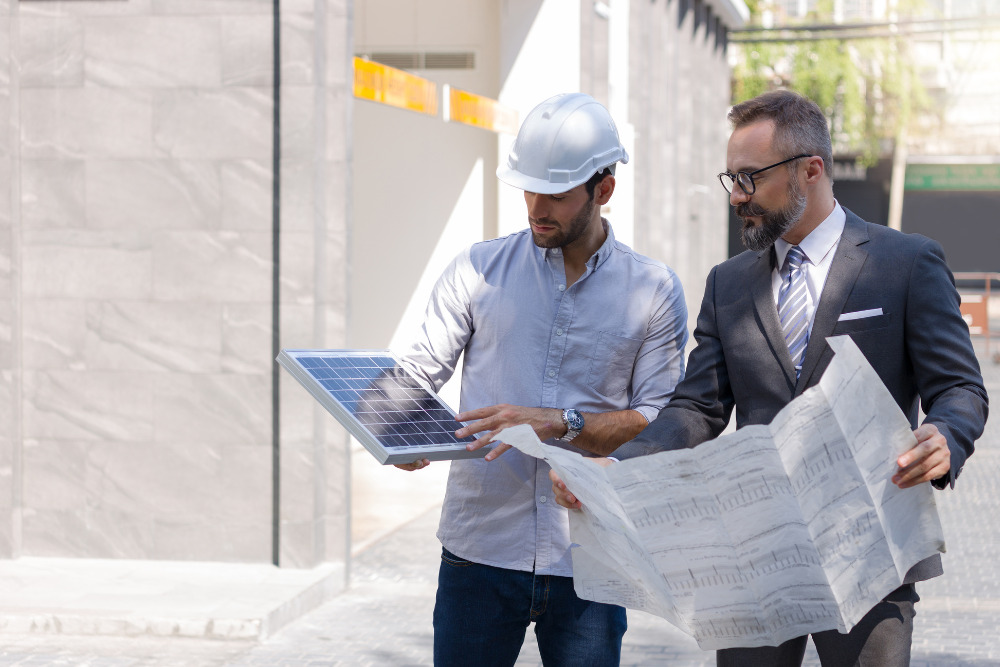
Building Codes Your Solar Installer Must Know
Solar installers in the United States must be aware of a variety of building codes, including:
The National Electrical Code (NEC)
NEC controls the safe installation of electrical systems, including solar photovoltaic (PV) systems. It governs all electrical components of a solar array, including the panels, wiring, inverter, conductors, disconnects, and battery storage, if applicable.
Following electrical code requirements, including labeling and proper installation per the manufacturer's instructions, prevents hazards and maintains electrical safety.
The International Building Code (IBC)
The IBC sets standards for the construction of buildings, including requirements for fire safety, structural stability, and accessibility.
Roof penetrations and the structural integrity of the existing building should be carefully evaluated, especially in single-family residences. If you are planning a PV installation, you must also look at square footage, occupancy, and property owner responsibilities.
The International Fire Code (IFC)
This body establishes standards for fire prevention and suppression in buildings. The IFC provides guidelines to ensure your solar PV system does not obstruct emergency exits or fire escapes.
The National Fire Protection Association (NFPA) provides training, continuing education, and certification for solar installers to ensure they are up-to-date on industry best practices and fire codes.
The Structural Engineering Code (ASCE)
ASCE Standards give general technical guidelines promoting civil engineering safety and reliability. They are also applicable to the installation of solar panel systems.
In addition to these national codes, solar installers may also need to comply with local building codes and ordinances, which can vary from city to city. Solar installers need to check with the local Authority Having Jurisdiction (AHJ) to understand the permitting process and to determine which regulations apply to their project.
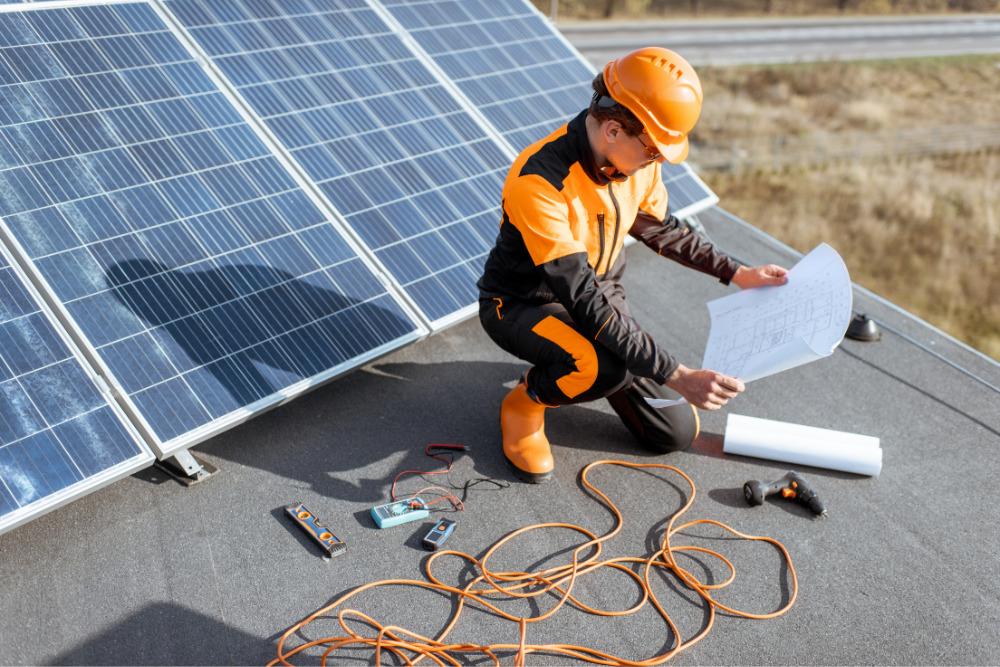
Failing To Comply
Solar installers who fail to comply with building codes may be subject to fines or other penalties. They may also be liable for any injuries or damage resulting from non-compliance.
Installers should stay up-to-date on building codes by:
- Subscribing to industry publications that keep track of code changes.
- Attending industry events where code updates are discussed.
- Networking with other solar installers to share information about code compliance.
- Checking with the local AHJ regularly to keep up to date on any code changes.
A reputable installer should prioritize their continuous education and stay up-to-date with the latest trends and innovations. This includes awareness of new code revisions, safety standards, and installation methods essential for system performance, efficiency, and longevity.
Homeowners and businesses considering solar energy systems are encouraged to meet with multiple installers to get quotes. Don’t hesitate to ask each installer about the permitting process and what building codes they’re required to meet. Ask them about their technician’s training and certifications, continuing education, and membership to any trade organizations.
The more seriously a company takes the education of their employees, the more you can trust that they are capable of installing a safe and reliable rooftop solar system that will serve you for many years to come.
